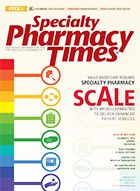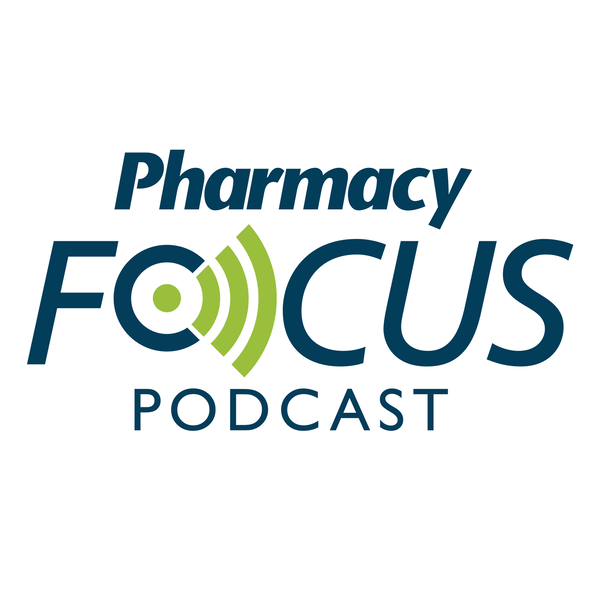Publication
Article
Specialty Pharmacy Times
Trends That Will Affect Specialty Health Care Into the FutureÂ
Author(s):
Current developments and innovations that will shape the future of specialty pharmacy.
The transformative health care events of the past year were incredibly diverse, as 2017 was truly a year of firsts. These significant changes include the first medicine approved with a digital ingestion tracking system, creating an exciting new possibility for the management of drug adherence. The first chimeric antigen receptor T-cell therapies entered the market, too, bringing great promise for improved outcomes for patients with cancer. The precision medicine movement continued with the first approval of a cancer drug based on the presence of a gene mutation, irrespective of the origin of the tumor within the body, which creates new implications for how cancers will be diagnosed and treated in the future.
At the same time, the industry continued to wrestle with such challenging issues as rising drug costs, value-based reimbursement, the growing opioid crisis, and strategies for bringing medical advances to the market faster. This article will delve into how these trends will evolve in the immediate future, as well as what new developments will have the biggest impact on the specialty industry.
Value-Based Care
Although quality payment programs, such as a merit-based incentive payment system (MIPS) and alternative payment models (APMs), technically started several years ago, 2018 may be the year when these programs start to have a tangible impact on patient care. For the nearly 200 oncology practices participating in the oncology care model (the largest APM model in the industry), this is the year in which provider incentives change from a reward for participation and reporting to having a portion of their payments at risk based on how their performance compares with that of other practices. As a result, poorly performing practices are likely to take steps to lower their costs. One of the key ways in which they can impact costs involves changing their prescribing behavior. Tracking prescribing trends in oncology over the next few years will be telling. Will physicians shift toward prescribing lower-priced products to achieve cost savings? Or will the influx of innovative new therapies lead providers to choose higher-cost treatments with an expectation of improved patient outcomes?
Another trend to watch is how independent physician practices will respond to growing pressures associated with quality payment programs. Although the Trump administration has taken some steps to soften the impact of MIPS by exempting low-volume Medicare practices from the system, this change has had a minimal impact on specialty physicians, such as oncologists with predominantly older patients.
For those who have no option but to participate in CMS quality payment programs, research conducted by Cardinal Health Specialty Solutions in 2017 shows that 27% of oncologists are unsure of the steps they need to take to comply with the Medicare Access and CHIP Reauthorization Act. With the penalty phase for MIPS beginning in 2019, it is likely that more independent specialty physicians, particularly those 65 years and older, may take steps to sell or merge their practices rather than make the changes necessary to operate under a value-based reimbursement model.
Precision Medicine
Last year saw the most new drug approvals in 21 years. It also marked a watershed year for cellular and genomic therapies, which reflect the movement toward precision medicine. In addition to the approvals discussed above, the FDA approved targeted drugs for acute myeloid leukemia and bladder, ovarian, and lung cancers.
Gene therapies, in which the patient’s cells are removed, genetically reengineered, and then returned to their bodies, has emerged from the pages of science fiction to become science fact. Today, there are more than 7000 inheritable genetic disorders. Treatment for many of these diseases may dramatically improve in the coming years as a result of precision medicine research. Luxturna (voretigene neparvovec-rzyl), a gene therapy for a rare form of blindness, is the first treatment approved for an inherited disease, but many more are in the pipeline. We will likely see cures for debilitating inherited diseases, such as sickle cell anemia and hemophilia, over the next few years.
Although these innovative therapies are delivering hope for patients and health care providers, they also are bringing complex challenges. Most of these products will be very expensive and stakeholders will undoubtedly engage in an intense debate regarding how to calculate their value, which patients should receive them, and how to pay for them. We will likely see new payment models emerge in which payments for drugs are stretched out over several years, as well as increased use of rebates if patients fail to meet certain therapeutic thresholds.
Another implication of the precision drug movement is increased specialization. As we shift from an era in which 10 drugs treated 100 diseases to an era in which there are 100 drugs to treat 10 diseases, the management of care will become far more complicated. Providers will inevitably need to rely on tools when making care decisions. This is where we may see the growing use of artificial intelligence (AI) in practices. Providers will feed clinical, demographic, and genetic testing data into an AI program, which will then provide a recommended treatment plan. Increased specialization may also change the role of allied health professionals, such as pharmacists, who may take on greater responsibilities for managing patient care and prescribing.
Biosimilars
At the end of 2017, 9 biosimilars had been approved in the United States and dozens more were in the late-stage pipeline. More biosimilars are anticipated to be approved in 2018, and access will improve as some of the products that were approved last year reach the supply chain. Although research shows that specialty physicians are open to prescribing biosimilars in place of their reference biologics, there is also an expectation that biosimilars will deliver significant cost savings. In a research study of oncologists conducted by Cardinal Health, 66% of physicians said it was extremely or very important to save costs when prescribing biosimilars. However, the cost difference between biosimilars and reference drugs is less than 20% today, and several of the reference brands are aggressively defending their position in the market through negotiated rebates. Therefore, providers and payers are not seeing the desired savings yet.
In the year ahead, we will likely see prescribers “testing the waters” when it comes to biosimilars, rather than a dramatic pendulum shift. Our research further suggests that physicians are likely to prescribe biosimilars for some of their patients’ newly diagnosed disease states but may not move existing patients off of reference brands in the near term. At the same time, legal battles between biosimilar and reference brands are likely to continue. Biosimilar players may become more aggressive in negotiating with payers and reaching out directly to providers and patients to share their value proposition. For specialty pharmacies and hub service providers, greater adoption of biosimilars may lead to broader opportunities to deliver patient support services, while biosimilar manufacturers look to put themselves on par with reference brands.
Real-World Evidence
When the 21st Century Cures Act was passed in December 2016, it called for the increased use of real-world evidence (RWE) to help speed FDA approval of certain drugs and medical devices. FDA Commissioner Scott Gottlieb, MD, reinforced that point in 2017, when he announced that the agency would allow drug developers to use RWE to support new uses of approved drugs under a forthcoming policy. Dr. Gottlieb said that RWE will ultimately help achieve better outcomes and safer, more efficient use of technology. The use of RWE has been quietly gaining steam over the past few years, but now with prominent support from officials such as Dr. Gottlieb, there is growing momentum to adopt RWE more broadly into both clinical development and postapproval commercialization efforts.
Up to this time, one of the barriers to wider use of RWE has been that most real-world studies were sponsored by pharmaceutical manufacturers. Although not inherently bad, this has led to a somewhat limited perspective. Payers have historically not sponsored RWE studies, which is perplexing given they have a vested interest in understanding how drug therapies compare in terms of both economic and clinical outcomes. This paradigm may begin to shift now that RWE has been endorsed by Dr. Gottlieb and other policy leaders. As a result, we may see broader sponsorship of RWE studies among various health care stakeholders, as well as wider use of these data in everything from phase 4 studies to reimbursement strategies and marketing campaigns.
Patient Centricity
For years, the industry has been buzzing about the concept of patient centricity, but 2018 might be the year that the patient truly becomes the center of care. Signs of this trend are everywhere. Physicians who are participating in value-based reimbursement programs are finding that a portion of their payment will be based on the patient experience. Hospital systems, which are increasingly competing for patients in complex specialty areas, such as oncology and neurology, are investing in improving the patient experience in the hopes of becoming a treatment center of choice. Pharma manufacturers are delivering more robust patient support services, including treatment education programs, on-call nurses who can counsel patients about adverse effects, financial assistance programs, and psychosocial support programs, to help ease the burdens of managing a chronic disease.
We’ve also seen a call for increased use of patient-reported outcomes data in clinical research, a sign that patients’ experiences of using a drug may soon be given as much consideration as efficacy and safety data. Adherence and patient education programs delivered by specialty pharmacies and hub service providers are also expanding as a result of a growing acceptance of the role that education and support services play in helping to drive cost efficiencies and better outcomes.
Looking Forward
This is an exciting time for those who have a role in the specialty health care industry, whether they be physicians, pharmacists, payers, drug manufacturers, policy makers, or patients. Scientific breakthroughs are delivering advancements in specialty treatment that might have seemed like science fiction just a decade ago. Along with these new possibilities, the industry is facing more confounding challenges around costs, reimbursement, and quality of care. Collaboration and communication among stakeholders are desperately needed to ensure that innovative therapies are made available to the patients who can benefit from them.

Newsletter
Stay informed on drug updates, treatment guidelines, and pharmacy practice trends—subscribe to Pharmacy Times for weekly clinical insights.






